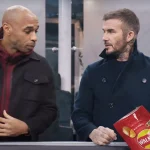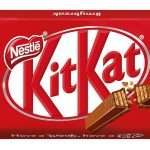In the classic 1990 film “Home Alone,” 8-year-old Kevin McCallister finds himself accidentally left behind during his family’s Christmas vacation.
Taking matters into his own hands, he ingeniously thwarts two burglars with a series of booby traps.
Fast forward to 2018, and we find adult Kevin McCallister once again abandoned by his family in a Google ad. This time, however, he is well-prepared and assisted by Google Assistant devices, adding a new twist to the familiar storyline.
The ad cleverly markets not only Google Assistant but also taps into nostalgia and childhood memories associated with the beloved film and character.
The YouTube ad opens with a panoramic view of the McCallister’s house, then shifts to the kitchen where Kevin, now grown-up, consults his tablet to check the day’s schedule using the virtual assistant.
The narrative unfolds as Kevin commands the assistant for various tasks, from adding aftershave to his shopping list to communicating with the pizza delivery person through a smart camera system.
The climax arrives as Kevin initiates “Operation Kevin” with the help of Google Home, deploying lights, door locks, and even a robotic vacuum with precision. The ad concludes with the tagline, “Make Google do it.”
This Google Assistant commercial, showcased on both national television and YouTube, strategically leverages the popularity of “Home Alone” and the character of Kevin McCallister.

As noted by Yang Fong in “The Impact of…Promotional Videos on Young Adults,” advertising videos wield significant influence on consumer decision-making by leaving a lasting impression.
By choosing to recreate the iconic scenes from the film, Google effectively targets a wide audience, reaching sports, news, and show series fans through television and capturing online audiences using YouTube’s searchability.
The intended audience for this Google Assistant ad appears to be adults in their twenties or older, particularly those with homes and a desire for smart home integration.
The ad showcases the practicality of Google Assistant devices, demonstrating their ability to access calendar information, set reminders, and control smart home devices.
The emotional component is crucial, as Google skillfully triggers nostalgia by recreating scenes from the 1990 film, complete with familiar decorations and even the famous line, “Keep the change, you filthy animal.”
The inclusion of actor Macaulay Culkin as adult Kevin McCallister is a masterstroke in evoking positive emotions and ensuring the ad’s success. As Dr. Josefa D. Martin-Santana notes, advertisements featuring celebrities receive more positive evaluations from audiences.
In this case, Culkin’s reprisal of his role adds credibility and trustworthiness to the product, as evidenced by viewer comments expressing joy at seeing “Kevin” once again.
Ultimately, the goal of this Google Assistant ad is to persuade viewers to purchase Google Assistant-enabled products.
The ad encourages viewers to see the virtual assistant as a helpful companion in navigating daily tasks and reducing stress, echoing Google’s message that “Even Kevin McCallister needs a little help.”
In summary, this advertisement stands out in the tech industry, successfully merging media culture, nostalgia, and innovative advertising to create a memorable and effective marketing campaign.
Read more:
- No Walkers, No Game: David Beckham and Thierry Henry’s Advertising Masterclass
- KitKat Rides Windows Crash Wave With Brilliant “Red Screen of Death” Advert
- Nik Naks launches new ‘Cheesy Kota’ flavour with help from Maglera Doe Boy
- Adidas Captures the Lamine Yamal Story in, “The Goat and The Kid” Advert
- Apple Trolls Android in new ‘Privacy on iPhone’ Advert






